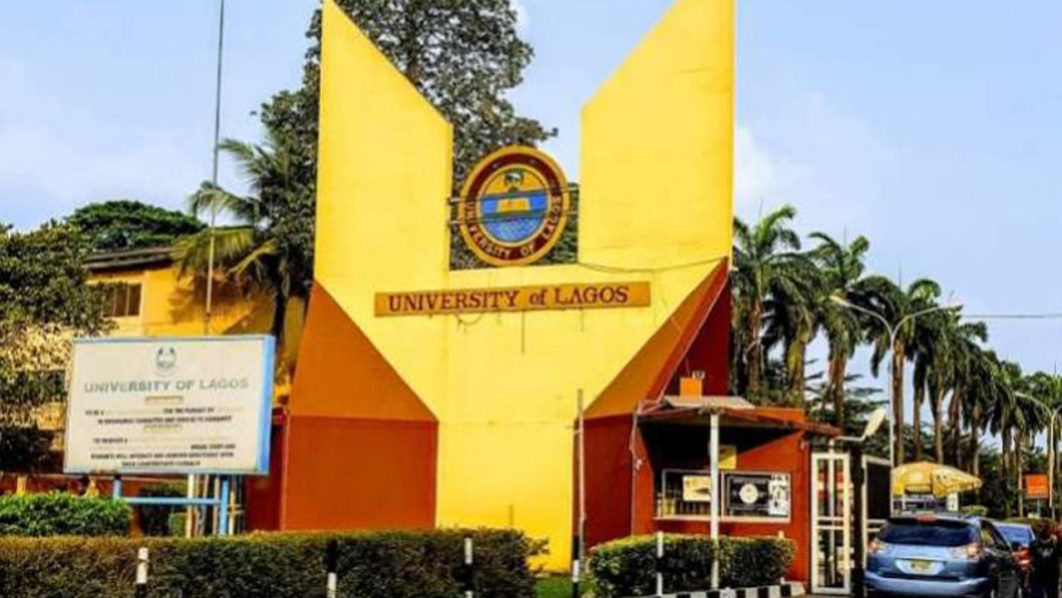Education
Osinbajo extolls UNILAG Law alumni
Vice President Yemi Osinbajo has praised the array of distinguished alumni of the Faculty of Law, University of Lagos (UNILAG) and their contributions to the development of the various sectors of the country.
Osinbajo gave the commendation at the UNILAG Law Alumni Dinner, themed: ‘The Great Homecoming’ which held on Saturday at Harbour Point, Victoria Island, Lagos.
“The reputation and goodwill of the alumni is the rationale for the prestige of the school.
“We must all be proud of the remarkable array of alumni and their great achievements not just in Law but practically in all fields of human endeavour.
“It is to time to boast about the weight of the UNILAG, the Faculty of Law and its contributions to the development of the society and country at large,” he said.
The vice president said that the quality of alumni from the prestigious university had led precedence in defining legal practice in the country.
“At the apex of the Nigerian judiciary is our Honourable Justice Kudirat Kekere-Ekun, last year she was joined by Justice Helen Ogunwunmiju, both alumni of the UNILAG Faculty of Law.
“At the Court of Appeal, we have so many such as Justice Patricia Mahmoud who served as Ag. Chief Judge of Kano State.
“Also the immediate past Chief Judge of Edo, Justice Esther Edigin, who was my classmate and the current Chief Judge of Lagos State, Justice Kazeem Alogba is also a proud alumnus,” he said.
Osinbajo also listed Justice Oyebiola Oyewunmi of the Industrial Court as a proud alumnus.
“In the Lagos State Judiciary alone, we have so many justices such as Justice Yetunde Adesanya, Justice Adenike Coker, Justice Atinuke Oluyemi, Justice Adedayo Akintoye, Justice Idowu Alakija among others.
“In the private bar, we have Mr Wole Olanipekun, and possibly the wealthiest of lawyers in the country,” he said.
The VP said that so many alumni had formed law firms of great reputation and recognition of their contributions to society.
“For example, we have the late Bankole Aluko, SAN, who co-founded one of the leading law firms in Nigeria today, Aluko and Oyebode.
“Then there is also Femi Olubanwo, co-founder of Banwo and Ighodalo who recently won the Nigerian Law firm of the year award,” he said.
Osinbajo added that himself as the vice president of the country and the Speaker of the House of Representatives, Mr Femi Gbajabiamila, were both alumni of the great institution.
“We also several former governors such as Gov. David Jemibewon of Oyo State and Gov. Gabriel Suswam of Benue State.
“Also, the Deputy Chief of Staff to the President, Mr Ade Ipaye and the the Special Adviser to the President on Ease of Doing Business, Dr Jumoke Oduwole are alumni.
“Both were former students and lecturers in the Faculty of Law, UNILAG and Oduwole is the holder of the Prince Claus Chair from 2013 to 2015,” he said.
The VP said that traditional rulers were not also left out of the UNILAG Faculty of Law alumni mentioning the Oba of Lagos, Oba Rilwan Akinolu, former AIG.
Osinbajo said that the institution had also produced several attorney generals such as the likes of Mr Kanu Agabi, Mr Christopher Ojo, Mr Adetokunbo Kayode and Mr Odein Ajumogobia.
“Many SANs have excelled in different ways such as Mr Fidelis Oditah who is possibly the only one of us who is both Queen’s Council and SAN,” he said.
The VP also recalled when Adokiya Amiesimaka during his days as an undergraduate played for the Sharks FC, Rivers and also won gold at the 1980 African Cup of Nations.
He also said that the entertainment industry and fashion industry had not been sparred the creative disruption made by their alumni especially the ladies who are making brilliant contributions in the industries.
“Our own Bolanle Austin-Peters, founded Nigeria’s first privately owned theatre, Terraculture; her film on the Ebola outbreak, ’93 Days’ is the highest nominated film in the 2017 African Movie Academy Awards.
“In the fashion world, Omoyemi Akinrele is raising the Nigerian flag high. She is the initiator of the Lagos Fashion Week.
“So our people are everywhere and I can keep on bragging about them until forever,” Osinbajo said.
Also, Mr Ajumogobia who served respectively as the minister of foreign affairs and minister of petroleum praised the multiple role played by alumni in the country and beyond.
“We have achieved immeasurable successes in careers as diverse as our country,” he said. (NAN)
Education
TETFund Trains 1,000 Students, 15 Staff in Bauchi Varsity

The Tertiary Education Trust Fund (TETFund) on Monday trained 1,000 students and 15 staff members of Sa’adu Zungur University (SAZU), Bauchi, on career development.
Vice Chancellor of the university, Prof. Fatimah Tahir said that the training reflected the institution’s commitment to preparing students for both academic achievement and professional excellence.
The training had the theme: “Empowering Future Professionals: Mastering Career Tools, Building Networks, and Navigating Opportunities.
’’Tahir said that the workshop focused on building the capacity of nominated Faculty Career Officers and dedicated staff who would serve as faculty anchors for future career programmes.
She commended TETFund for supporting the establishment of the university’s Career Service Centre, saying its intervention was transformational in creating sustainable structures for students and alumni career support.
Also speaking, Dr Wasilu Suleman, Director of Human Resource and Career Development, SAZU, described the initiative as a turning point, which placed career development at the heart of academic excellence.
He emphasised their critical role as mentors, facilitators, connectors, and enablers, in helping students discover purpose, build competence, and compete in the modern labour market.
During the sessions, facilitators guided participants on resume and cover letter writing, internship and volunteer placements, mock interviews, and negotiation strategies.
One of the participants, Malam Adamu Ibrahim, said they were expected to be better equipped to navigate career opportunities, strengthen professional networks, and bridge the gap between academic learning and workplace demands.
| ReplyReply allForwardAdd reaction |
Education
Stakeholders Blame Exams Body, Parents over Mass Failure

Stakeholders in the education sector said, the mass failure in the 2025 West Africa Senior Secondary Certificate Examinations (WASSCE) stem from systemic issues attributed to the examination body, parents and the students
The stakeholders spoke in separate interviews in Abuja on Thursday.
Founder, Exam Ethics Marshall International (EEMI), Ike Onyekere faulted the systemic malpractice and deep-rooted corruption within Nigeria’s examination ecosystem.
The West Africa Examination Council (WAEC) had revealed a sharp decline in performance in the 2025 SSE results compared to the previous year.
Out of a total of 1,969,313 candidates who sat for the examination across 23,554 schools, only 754,545 candidates, representing 38.
32 per cent obtained a minimum of five credits, including English Language and Mathematics.Onyechere decried the 38.32 per cent credit pass rate recorded in this year’s examinations as a “very poor result,”
He, however, noted that the decline was not unexpected due to challenges encountered during the exams.
According to him, there were serious logistical issues during the exams such as power outages, poor supervision, and lack of proper oversight which contributed to students’ poor showing.
“I am not surprised because these logistical issues, as critical as they were, they were ignored during and after the exams.
“No person talked about how those kinds of issues should be addressed in terms of how they affected the performance of those students.
“No person talked about what happened after their papers were collected from them, when they did finish their allotted time and when there was no light.
“So these are some of the questions we need to address,” he said.
Onyechere further criticised students’ growing reliance on “magic centres” and malpractice rings, arguing that many students no longer prepare sincerely for their examinations.
He said most of the students have their mind fixed on magic centres, and other forms of malpractices unfettered and with no consequences.
He accused WAEC and its sister examination body of enabling malpractice by repeatedly failing to name and shame individuals and institutions complicit in exam fraud.
“Every year, WAEC releases statements saying schools were involved in malpractices but where are the names? Who are these schools? Who are the supervisors?
“They recycle these supervisors and protect them,” he said
Citing his experience in the Federal Ministry of Education, he alleged that past attempts to publish and blacklist indicted schools and individuals were stifled.
He praised the Joint Admissions and Matriculation Board (JAMB) for its comparative transparency, saying, “at least, JAMB names CBT centres and schools caught in malpractice and takes them to court.
Onyechere admonished WAEC to take cue from JAMB, in addressing the menace of malpractices.
For meaningful change, he called on WAEC to publish names, sanction schools, blacklist corrupt officials, and take concrete action, not just about release of statements.
He also advised students to reject malpractice, rather, discover and develop their true talents.
Also, Dr Jekayinfa Olatunji, a Fellow with the National Mathematical Centre (NMC), called for a national education emergency roundtable, reforms in exam preparation strategies, and closer monitoring of learning standards at all levels.
Olatunji said until tangible solutions are implemented, the futures of millions of Nigerian students would hang in the balance.
“In 2024, no fewer than 1,805,216 students sat for waec exams out of which 1,332,089 students passed at least 5 subjects including English Language and Mathematics at credit level and above, representing 72.12 per cent pass.
“Ordinarily, the results may seem good, but, what about the remaining 27.88 per cent who didn’t get five credits with English Language and Mathematics?
“The students might not have progressed in their education that year.
“Now, the worst has happened in 2025. Out of 1,969,313 students who sat for WASSCE exams, only 38.32 per cent passed five subjects including English Language and Mathematics.
“The remaining 68.68 per cent didn’t pass five subjects including English Language and Mathematics.
“What this means is that only 754,641 students out of 1,969,313 succeeded in having scores that could earn them tertiary institution admissions,” he said
He advised the education stakeholders to take proactive steps to forestall a repeat of the woeful performance in 2026.
Similarly, a civil servant and a parent, Ijeoma Osita, attributed the poor performance in the examination to both students’ attitudes and the role of parents in fostering academic irresponsibility.
Osita decried increasing culture of academic laziness among students and misplaced priorities by parents.
She further lamented that the quality of learning was fast diminishing due to an over-dependence on technology without critical thinking and originality.
According to her, many students no longer commit themselves to studying or building academic discipline, choosing instead to rely heavily on shortcuts such as Artificial Intelligence (AI), examination malpractice, and plagiarism.
“From what I have observed, many students are not ready to go the extra mile to study, build their capacity and equip themselves academically.
“They rely so much on AI and ‘expo’. Unfortunately parents endorse the negative trend, in having their children pass exams.
“They fail to harness the potential in their children by encouraging them to study harder, or even employ extra hands to coach them in the areas of weakness.
“The parents prefer to hire “machinery,” sometimes to write exams for their children.
“Some will even encourage and finance their children to leave the school, where they have attended for years, to register them in ‘miracle centres’,” she said.
She urged parents to take more responsibility in guiding their children, stressing the importance of discipline, hard work and quality education over superficial success.
| ReplyForwardAdd reaction |
Education
WAEC, Education Ministry Resolve Result Glitch Updates Ready in 24 Hours

By Elijah Oguche, Abuja
The Federal Ministry of Education has announced the resolution of a technical issue affecting the 2025 West Africa Senior Secondary Certificate Examinations results.
The issue occurred during post-release processing in subjects where paper serialisation was implemented as part of WAEC’s exam security measures.
A statement by Folasade Boriowo, the director of press of the ministry on Thursday said the Ministry commended the West African Examinations Council for its swift response, transparency, and professionalism in resolving the glitch.
Updated results will be accessible via the result checker portal within the next 24 hours.The Ministry also appreciated the patience of affected candidates and assured the public of its continued pursuit of fairness and credibility in assessment processes.
“This development reinforces the Honourable Minister’s broader education reform agenda, which prioritizes examination integrity across all bodies under the Ministry’s supervision, particularly WAEC and the National Examinations Council (NECO). In line with this, both bodies are set to commence a phased rollout of Computer-Based Testing beginning with objective components in November 2026.
“The adoption of CBT represents a critical step toward curbing malpractice, preventing question leakages, and restoring public trust in the examination system. It is a necessary reform to ensure Nigerian students are assessed strictly on merit and that their certificates retain credibility both locally and internationally.
“Dr. Alausa emphasized that safeguarding the integrity of examinations is not optional—it is essential. Upholding high standards, he noted, protects the future of our young people and sustains Nigeria’s global reputation,” Boriowo stated.























